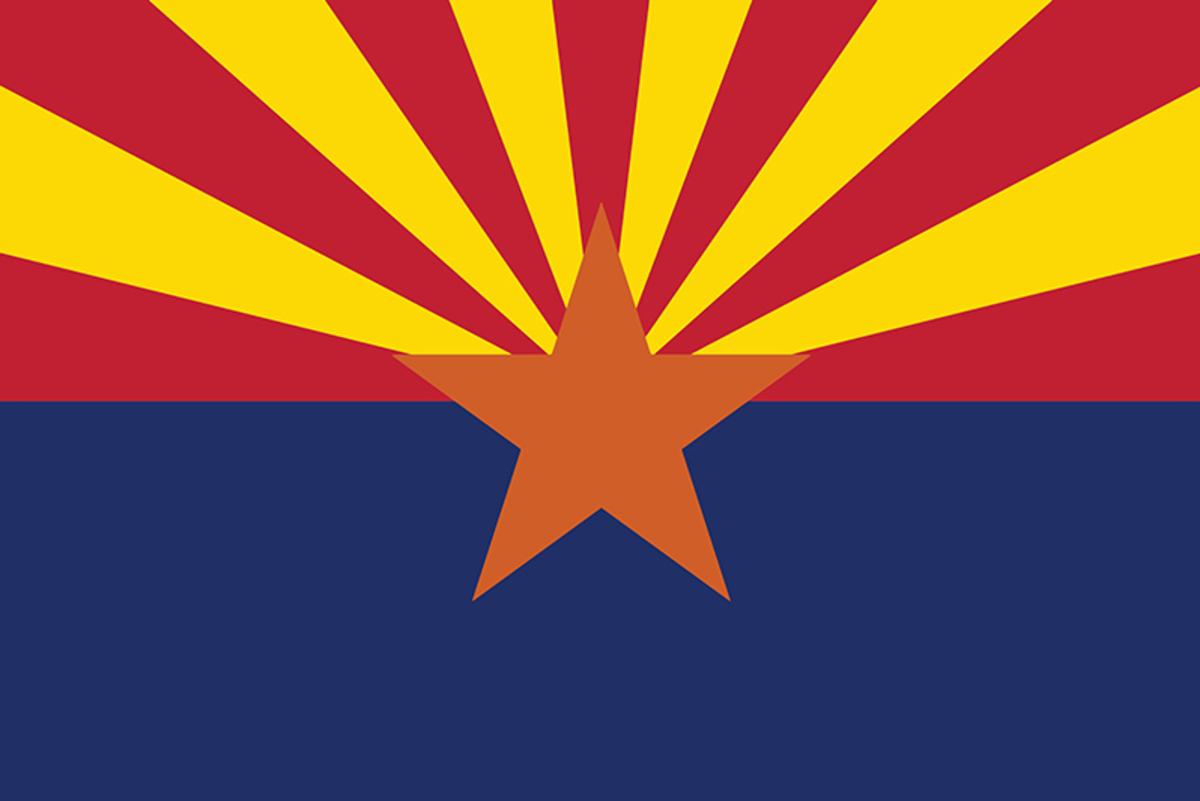Arizona Workers’ Compensation Laws

In 2021, private companies in Arizona reported a cumulative count of 57,100 workplace-related injuries and illnesses. This translates to a rate of 2.8 cases for every 100 full-time employees, according to the U.S. Bureau of Labor Statistics. Of the total number of occupational injuries and illnesses, 34,700 were considered serious or severe, which led to days away from work, limitations, or job transfers.
Although injuries at work can generally be prevented, there are simply circumstances where this is not possible. It is important to have a thorough understanding of the workers’ compensation laws, the rights of the employees, and available resources to be able to navigate the daunting task of filing a valid claim for benefits. This guide aims to assist individuals who are involved in workers' comp matters in Arizona in making well-informed decisions during these crucial situations.
Arizona Workers’ Compensation Insurance Requirements
Under Arizona laws, all private and public employers must obtain workers’ compensation insurance if they have at least one person working for them. This applies whether the employee is working part-time or full-time or even if the employer is a Limited Liability Company.
Employers must bear the entire cost of workers' compensation coverage. They may not deduct any money from their employees' salaries to finance the insurance premium. Violation of the state’s workers’ comp laws may result in a jail sentence of up to two years, fines of up to $10,000, and the Industrial Commission of Arizona shutting down the company.
Where to Get Workers’ Compensation Insurance in Arizona
Employers may reach out to the Arizona Department of Insurance to get a list of insurance firms in the state that are authorized to sell workers’ compensation coverage. Those who satisfy specific criteria can also ask ICA for permission to handle their own workers’ comp instead of buying insurance from private firms.
Once they obtain the required coverage from agencies or get the green light to self-insure, employers must put up a notice informing employees of the existing workers’ compensation insurance.
The notice should also specify that employees have the right to decline or reject coverage. The company must provide “rejection” forms for workers who decide to opt out of the workers’ compensation insurance. Employees must file the rejection prior to a job-related illness or injury. They have the option to withdraw the rejection but must do so before an injury occurs.
Arizona Workers’ Compensation Coverage for Independent Contractors
Employers are typically not required to provide workers’ comp insurance for independent workers. Occasionally, however, disagreements can arise regarding whether an individual is an employee or an independent contractor.
Courts consider various factors to determine employment status, such as hiring and firing rights, length of employment, work hours, payment methods, level of control over the individual’s work, and whether the work is performed as part of the employer’s usual business operations.
Other variables may still come into play, and no single aspect can be considered conclusive in itself. Therefore, even if someone believes that they have an “independent contractor” relationship with their client, the court could still determine that they are an employee and are therefore entitled to workers’ compensation coverage.
Arizona Workers’ Compensation for Government Employees
Federal employees claiming compensation for work-related injuries are covered by the Federal Employees Compensation Act. This statute ensures injured federal workers can return to their prior job or a similar one with the same rights and benefits.
In the event of an injury, federal workers can take unpaid leave while still receiving benefits. The agency where they were injured must offer them their job back, but other agencies have no obligation to hire them.
Employees with severe injuries can request regular pay for a maximum of 45 days. They may also choose to file sick leave, vacation time, or unpaid leave if they need more time to recover from their injuries.
In the event of a fatality following a work-related injury or illness, the decedent’s family will be entitled to death benefits. The surviving spouse will receive 45% of what the employee was paid prior to their death, while the child will receive 15%. The eldest child of a single parent killed in a workplace accident will receive 40% of the estate, while the remaining children will get 15%. Lastly, the surviving spouse will receive half of the worker's final salary if there are no children.
Situations Not Covered by Arizona's Workers' Compensation
Arizona, similar to other states, follows a “no-fault” approach when granting workers’ compensation benefits. This means an employee injured in the workplace is entitled to benefits, regardless of who caused the accident. However, there are specific situations not covered by Arizona’s workers’ comp law:
Injuries caused by breaking company policies: If an employee gets hurt as a result of negligence or violation of company rules, they may not be eligible for workers’ compensation.
Injuries that are self-inflicted: Employees who intentionally harm themselves are disqualified from receiving workers’ comp.
Injuries resulting from violation of employment law: Employees who sustain injuries while perpetrating illegal acts, like committing a crime, may be ineligible to claim workers’ comp benefits.
Injuries sustained while not on the job: Benefits are available only to employees injured while working on the clock or engaging in job-related duties.
Arizona Workers’ Comp Benefits
Injured workers in Arizona can collect three main types of benefits: medical expenses, lost income and disability, and wrongful death.
Medical Expenses: Any medical bills associated with an employment-related injury may be covered by workers’ compensation, including the following:
Hospitalizations and trips to the emergency room.
Doctor’s appointments.
Rehabilitation for physical injuries.
Medical prescriptions.
Diagnostic tests and screenings.
Travel costs for medical appointments.
Lost Income and Disability: Depending on the circumstances and nature of their injuries, injured employees may be eligible to obtain lost income benefits. There are four types of income benefits for Arizona workers:
Temporary Total Disability: This benefit is available to employees who are unable to work temporarily following an injury. A physician must officially put the employee on medical leave.
Temporary Partial Disability: This is given to injured workers who can go back to work but are unable to fulfill all of their duties. Like in temporary total disability, a doctor has to sign off on an employee’s work limits and restrictions.
Permanent Partial Disability: This type of compensation is provided to employees who have sustained permanent injuries but are still able to retain a certain degree of employability (e.g., blindness in one eye, nerve damage, hearing loss, or loss of a finger or hand).
Permanent Total Disability: This is paid to workers whose injuries render them entirely incapable of working (e.g., paralyzation, blindness in both eyes, traumatic brain injury, or multiple limb loss).
Wrongful Death: Surviving dependents, such as spouses, children or stepchildren, siblings, or parents of employees who died due to a workplace accident or injury may collect benefits for the loss of their loved one. The dependents’ relationship to the decedent generally determines the duration by which they can receive death benefits. The insurance provider is also obliged to cover burial and funeral costs up to $5,000.
How to File a Workers’ Compensation Claim in Arizona
It is primarily the injured employee’s responsibility to notify his supervisor or employer about their injury. In turn, it is the company’s obligation to acknowledge and process the claim.
When Is the Deadline for Workers’ Comp Claims in Arizona?
A workers’ compensation claim must be filed with the ICA within one year of the occurrence or discovery of the work-related injury. Failure to timely file the injury claim may result in the denial of the claim, regardless of the case’s merits.
Step-By-Step Guide on Filing a Workers’ Compensation Claim in Arizona
Below is a simple guide on how to file workers’ compensation claims in Arizona.
1. Report the Injury
After being injured or when an injury or illness related to working conditions is discovered, the employee must inform their supervisor or employer right away. This is a vital step to prevent claims from being needlessly held up or denied. When seeking medical attention, the employee must also inform the physician that the illness or injury is employment-related.
2. Fill Out the Necessary Forms
A Workers’ and Physician’s Report of Injury must be provided to the employee. If the employee is unable to fill out this form while seeking medical assistance in a facility, they may fill out the Workers’ Report of Injury completely. A formal application for workers’ compensation benefits is officially lodged after the employee signs and submits these forms to ICA.
3. Seek Medical Treatment
Refusal to seek medical treatment may make a claim look suspicious, which can then result in a denial. Unless the employer is self-insured and controls the course of treatment, the injured employee may seek treatment from their physician of choice.
The law permits employers, if not self-insured, to suggest that their injured employee visit a doctor of their choosing once. If the employee continues to see this doctor on more than one occasion, it is then considered that they have chosen this doctor for their medical care.
If the employee decides to change physicians once they have already started seeing one regularly, they must secure the approval of their current doctor, the insurance provider, and ICA.
4. Wait for Notification of Claims Status
ICA will notify the insurance carrier or the self-insured employer upon receipt of the Workers’ and Physicians’ Report of Injury or the Workers’ Report of Injury. They will also advise the injured employee of the name of the insurer, if applicable. Injured employees may likewise contact ICA if they have not received any notification within two weeks of submitting the claim. The insurance company has 21 days from the date of notification to either approve or reject a claim. Failure to make a decision within this timeframe may result in penalty benefits in favor of the injured employee.
5. Review Benefit and Wage Calculation
There are two types of workers’ compensation claims once approved. The first is medical-only or no-time-loss claims, which cover healthcare or medical-related costs only. The other is time-loss claims, which cover both medical expenses and missed wages.
The insurer will provide a Notice of Claim Status for medical-only claims, and related expenses will continue to be covered until the physician deems that no further treatment is necessary.
Injured workers who initially paid for their own treatment must send the receipts to the insurance company for reimbursement. The employee may voluntarily cease receiving medical care, and the insurer will close the claim even without the doctor’s clearance.
If a physician confirms that an employee is unable to resume work or can only work with limited capabilities as a result of the injury for seven calendar days, time-loss claims will apply.
Lost wages for the first week are paid only if the injured employee is unable to work for a minimum of two weeks or 14 days.
For example, if you’re unable to work for nine days because of a work-related injury, you will get paid only for days eight and nine. However, if the injury prevents you from working for 14 consecutive days, you will be compensated for the entire period, including the first seven. Note that insurers don’t usually count the day when the employee was injured, as they are considered “working” that day.
The standard formula for calculating wage compensation is 66⅔% of the worker’s average monthly income, which is based on the last 30 days of pay. Workers should receive notice of the accepted workers’ comp claim when they receive their first temporary compensation check from the insurer.
This notice should also contain how their monthly average income was calculated. If there’s a need to dispute the calculation, the employee may reach out to the Wage Section of the ICA Claims Division or submit the Request for Hearing form.
Leaving Arizona While Receiving Workers’ Comp Benefits
An injured worker in Arizona must obtain written authorization from ICA to leave the state for a period exceeding two weeks if medical treatment is still deemed necessary. The employee gives up their right to compensation if they leave the state for more than two weeks. This means that the insurance carrier will not be obliged to cover medical costs or compensation. Additionally, if the employee’s condition worsens as a result of their leaving the state without permission, they will not be entitled to receive any benefit.
What Should One Do If a Workers’ Compensation Claim in Arizona Has Been Denied?
Injured employees in Arizona will receive a Notice of Claim Status (Form 104) to inform them whether their claim has been accepted or denied. Those whose claims have been rejected have 90 days to dispute the decision. This can be done either by filing a signed Request for Hearing form or by sending a letter to ICA. If the employee is incapacitated or unable to file the protest themselves, they may request a legal representative to do it on their behalf.
If the initial protest is unsuccessful, an employee has the option to file for a review of the decision. This must be done within 30 days of the hearing. Finally, the employee may take it up with the Arizona Court of Appeals if the decision to deny is upheld. It would be helpful to retain the services of a workers’ compensation attorney at this point.
Legal Resources for Injured Workers in Arizona
Suffering a work-related injury or illness and having to submit a workers’ comp claim can seem like a daunting task, especially for employees who may not be familiar with the claims process. The following resources are available to injured Arizona employees who need assistance with their claims.
Industrial Commission of Arizona - Claims Division
The Claims Division of ICA helps ensure the efficient and effective processing of workers’ compensation claims and provides employees with links to various forms required for filing claims, requests, and appeals. The website also offers a list of self-insured employers in the state, along with claims processing statistics and a helpful FAQ section for employers.
State Bar of Arizona - Certified Board Specialists in Workers Compensation Law
Certified Board Specialists in Workers' Compensation Law in Arizona are licensed attorneys who have proven expertise in workers' comp law. These attorneys have undergone rigorous training and evaluation to achieve their certification, highlighting their experience and expertise in dealing with legal matters involving workplace injuries and compensation claims. In order to retain their certification, these attorneys must remain updated on the most recent workers' compensation law developments. This dedication to continuous education assures clients that they can expect relevant and efficient legal representation with regard to their workers’ comp concerns.
The Arizona Foundation for Legal Services and Education
The Arizona Foundation for Legal Services and Education is a nonprofit organization that aims to improve access to legal information and services. It partners with various legal organizations throughout the state to help citizens apply for legal aid, find answers to their law-related questions, and download court forms.
Kids Chance of Arizona
The organization offers educational aid in the form of scholarships to children whose parents have been killed or disabled permanently as a result of a workplace injury. With a presence in all 50 states, the Arizona chapter of this organization is run solely by a volunteer board of directors. It has awarded 341 scholarship grants totaling $789,829.50 to date.
Mental Health America of Arizona
Serving Arizonians since 1954, Mental Health America supports all those affected by mental health concerns. This is especially beneficial for employees who may be struggling mentally or are feeling distressed after being displaced from work following a workplace injury. Arizonans can take advantage of MHA’s free online screening to determine whether they qualify for a referral. The organization also has a network of mental health practitioners throughout the state who accept a variety of insurance plans and also accommodate those who are uninsured.
Expertise.com StaffAuthor
Step into the world of Expertise.com, your go-to hub for credible insights. We don't take accuracy lightly around here. Our squad of expert reviewers, each a maestro in their field, has given the green light to every single article you'll find. From rigorous fact-checking to meticulous evaluations of service providers, we've got it all covered. So feel free to dive in and explore. The information you'll uncover has been stamped with the seal of approval by our top-notch experts.




